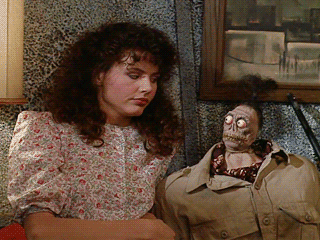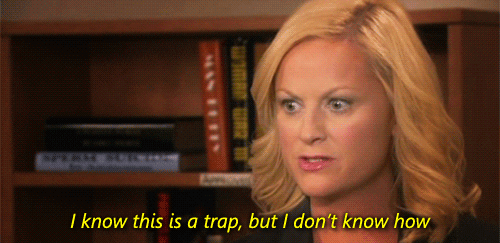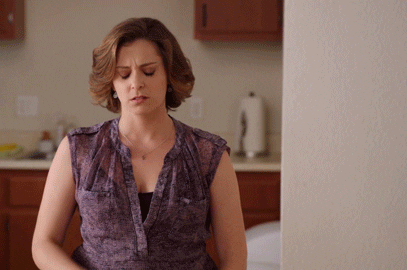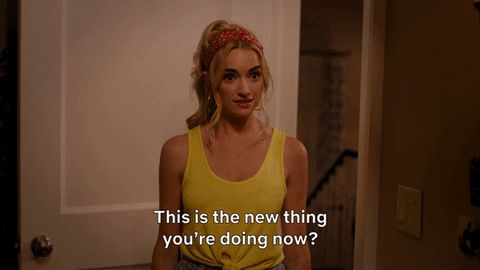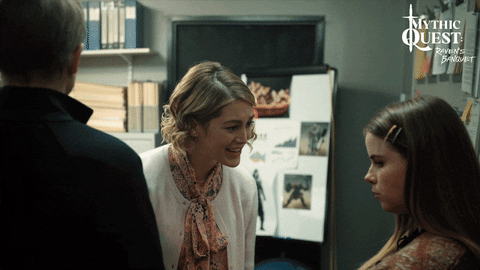Being a Woman in T&S
A meditation on tomfoolery and nonsense
Before you read this, if you’re woman-identifying in Trust & Safety and are interested in meeting other cool women, think about joining this meetup group I’m developing: https://forms.gle/77wziRFY6P7f37Pf8
Okay back to your regularly scheduled content.
Before I dive into this, let me start by saying that what I'm about to share is based on my own experiences. While some of it may resonate with other women, I acknowledge that everyone's journey is unique, shaped by various factors, both systemic and personal. I want to emphasize that these thoughts are solely mine and do not represent any official stance as a company leader, employer, or an attempt to disparage any particular company.
After immersing myself in the realm of Trust & Safety across various companies, it has become painfully evident that my male colleagues and I have vastly different experiences. Now, don't get me wrong, there's no shortage of articles, books, and think pieces by some incredibly influential women in tech discussing the glaring disparities in how men and women are treated in the industry at large. But that's not the focus here. No, the disparities I've observed go beyond the well-trodden paths, because, you see, Trust and Safety transcends the usual boundaries of work.
We all know that the discussions we have in Trust & Safety would make HR’s head spin. I’m pretty sure lengthy, sometimes explicit dissections of porn in a conference room violates every sexual harassment training I’ve ever taken - and for good reason! Nevertheless, it’s my job to dive feet first into these subjects, engage with the content, and handle the work, no matter how unglamorous. Because of my role(s), I tend to be the only woman in the room with a bunch of male colleagues where these discussions take place. Without fail the men will instinctively lower their voice when mentioning anything traditionally uncomfortable, and cast nervous glances at me. No one else. Just me. It’s like walking into a room where people were just talking about you, and suddenly everyone goes quiet. Big, bugged eyes - all on me.
Now, it’s entirely possible that I just emit a strong aura of awkwardness; this is absolutely a constant fear of mine, looming over every single interaction I’ve ever had… ever. But I know this is different. It’s not just the uncomfortable silence and darting eyes; it’s the nervous laughter that follows, and the uneasy squirming in seats. And being cursed with the toxic trait of cracking jokes in uncomfortable situations, I unleash some snarky comment to propel the conversation forward, pretending as if nothing out of the ordinary happened - as though it’s completely fine, everything’s fine, let’s get back to the porn playing on the screen, which is a totally normal thing for normal people to do, act casual Jess, it’s up to you to make sure these people feel safe.
This does not happen when I’m in conversations with female colleagues. In those meetings, there's a distinct camaraderie as we bounce ideas off each other, delving into the realm of utterly repulsive topics with a sense of shared understanding. Yes, it's undeniably awkward, but there's a certain fluidity to our discourse, a desensitization to the language we use. And so, whether we're dissecting policy matters, discussing enforcement strategies, or diving into product intricacies, we navigate these conversations with relative ease.
Compounding on the general awkwardness is navigating the distinct challenge of defending your work in a manner that I've never encountered throughout my entire professional history prior to venturing into the world of Trust & Safety.
As a woman in Trust & Safety, I find myself constantly having to defend my choice to be in this field. Let’s continue with the daunting task of reviewing explicit content, hardcore pornography, and disturbing instances of potentially fake (at least, I hope so) rape. It falls upon me to make the call of "well, that falls under freedom of expression" and carry on with my day. It gnaws at you, no doubt, but what gnaws even more is the judgment from others on all sides of the conversation.
There are those who agree with the anti-porn laws or applaud the emergence of legislation like FOSTA, and the judgment against them lingers. "Sex work is real work" is a phrase that frequently gets thrown around by FOSTA opposers, serving as a convenient way to shut down any real regulatory discussion while disregarding the genuine implications and repercussions that those bills strive to address. On the flip side, there are those who recognize the harmful impact of certain content but choose to tolerate it in order to uphold the principles of freedom of expression and the live-and-let-live philosophy. However, those who vehemently oppose this approach, driven by an unwavering commitment to absolute safety, fail to grasp the grave consequences of suppressing all awful-but-lawful content. They overlook the fundamental rights that are at risk and disregard the potential chaos that could unfold if we dismantle CDA 230. Yet, in either scenario, if you're a woman, you find yourself unequivocally wrong.
You're labeled a bad feminist if you align with FOSTA, or you're deemed a supporter of child grooming and revenge porn if you support freedom of expression. There's no winning. And what's particularly frustrating is that this isn't something I've observed my male colleagues facing to the same extent.
But perhaps the one that resonates the most is the comments I face regarding being a mother and working primarily in Child Safety throughout my career. As a Mom™️, there is an unwritten expectation that my role as a mother supersedes any other aspect of my life. So, as someone with children in this field, I expose myself to heightened scrutiny in an already intensely scrutinized domain, and I constantly find myself having to justify my choice to combat harmful content and protect children from legitimate predators. I hear a lot of:
“How could you do this? You have kids?”
“Oh, I could never do your line of work if I had kids.”
“Doesn’t it feel wrong going home to your kids at night?”
“How do you handle this and still call yourself a mother?” (Ouch.)
Ah, the joys of being a mom in this line of work. It's amazing how my status as a mother suddenly becomes the centerpiece of every discussion, as if it defines my entire existence. Funny how that never happens to the dads. It's like my dedication to protecting children is automatically questioned because I also happen to be a mom. But let me set the record straight: I am in this field because I genuinely care about kids, both as a mother and as a human being with a heart. Having children only strengthens my resolve to take down the scumbags who engage in these reprehensible acts. My identity didn't vanish the moment I became a mom; if anything, it fueled my determination to fight even harder. So, yes, I'll continue doing what I do, defending the innocent, and proving that being a mom doesn't make me any less capable or passionate about my work.
As I often say, “If my kids and my family ever found themselves in these situations, I would want someone like me taking care of them on the internet.”
I have a Masters in Legal and Forensic Psychology (the fancy way of just saying “forensic psychology” by the APA, I digress). I’m not writing this as some grandstanding way of humble bragging. I’m writing this because across my career, I’ve encountered males in the field who question my ability to parse out Trust & Safety topics despite my formal educational background and years of practical experience. And I know they don’t do it on purpose. I know this because it’s faux pas to do so. But instead, what I witness are the all-too-familiar microaggressions that nearly all working-women face on a daily basis. The emotional labor and toll it takes to work in a male-dominated field is suddenly multiplied tenfold, amplifying the already challenging emotional strain that comes with being in Trust & Safety. It's like trying to navigate through a labyrinth while your mind is pulled in a million different directions.
Women aren’t immune to this phenomenon either.
I had a front-row seat to witness the masterful art of scapegoating in action. It was a sight to behold as a former boss, in all her wisdom, decided to lay the blame squarely on the shoulders of a young woman for a minor mishap in relocating a team of moderators. Little did she know, or perhaps conveniently ignored, that the real culprit behind the slip-up was none other than that young woman’s male counterpart, my boss’ direct report. And that wasn’t the first, nor last, time my boss showed positive intent to the males on the team, but not the females working alongside them.
I guess my takeaway from all of this is, well, being a woman in Trust & Safety can really suck sometimes, despite the fact that we make up a significant portion of the operational and policy roles in the field. So, to all my male-identifying colleagues out there, I implore you to be allies for women in this space. Listen to us, we’re not stupid. Give us the benefit of the doubt that we know what we’re talking about. And please, oh please, stop making it weird for us when we’re in the thick of talking about terrible shit; I promise, we won’t suddenly burst into flames at the sight of naked bodies.
Let’s all agree to stop putting women through unnecessary scrutiny and criticism as they strive to navigate an industry that often defies all logic. Can we just support each other and make this whole thing a little less absurd?
Oh - and stop asking me about being a mom in the industry. I might snap.
ICYMI / Things on my brain

